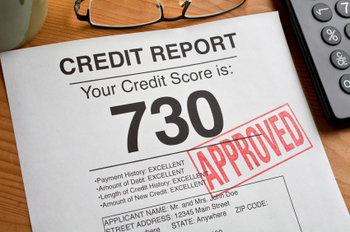
CFPB finds credit score discrepancies and recommends heightened consumer awareness.
A recent Consumer Financial Protection Bureau (CFPB) study found that one in five consumers receives a credit score that is significantly different from the score given to potential lenders.
recent Consumer Financial Protection Bureau (CFPB) study found that one in five consumers receives a credit score that is significantly different from the score given to potential lenders.
Consumers can obtain credit scores from one of several nationwide consumer reporting agencies: Equifax, TransUnion, or Experian. Instead of relying on these agencies, ninety percent of lenders acquire credit scores through FICO, a private company that uses a different system for assessing credit worthiness. FICO also offers several industry-specific calculation systems, such as an Auto Loan score. Alternatively, lenders can obtain consumer credit scores from another company, VantageScore LLC, which was developed jointly by the three major credit reporting agencies.
The ratings agencies and the companies that provide credit scores to lenders use different scoring models. The CFPB undertook its study to determine whether these different methods yield different scores, and if so, whether the variance harms consumers. The Bureau asked Equifax, TransUnion, and Experian each to provide credit data for 200,000 individuals. For each consumer, the CFPB researchers compared five different credit scores:
- The ratings agency score provided to consumers;
- The generic FICO score (obtained directly from the company);
- The FICO Auto Loan score;
- The FICO BankCard score;
- The VantageScore 1.0.
The study found that for around eighty percent of individuals, the different methods yield a relatively similar score. However, significant differences were detected for the remaining twenty percent. Additionally, the variation tended to be greater for individuals with above average credit. The report does not specify whether variances more frequently harmed or benefitted the consumer.
CFPB pointed out that differences in scores produced by the different methods are only significant if the variance hurts consumers. The Bureau noted several ways that a divergence can be harmful. If a consumer receives a credit score that is higher than that given to creditors, he may overestimate his own creditworthiness. This overestimation could cause him to apply for loans for which he is unqualified, causing him to waste time and money. He may also reject lending offers as over-priced based on his inaccurate perception of his qualifications. Conversely, a consumer may underestimate her own creditworthiness, and refrain from applying for potentially beneficial loans. This excess of caution could cause her to put off making major purchases, such as a house or a car. A consumer who underestimates her creditworthiness might also waste time and effort by taking measures to improve his score.
Some lenders use specific numerical cutoffs to determine qualification for a credit line. Minor variations in credit ratings could give sophisticated borrowers a false sense that a beneficial loan is beyond their reach.
Ultimately, the CFPB suggested that consumers avoid “relying on scores they purchase as the sole basis for assessing their creditworthiness when making important decision about obtaining credit.” Because consumers cannot determine in advance whether their scores will differ widely from those received by prospective lenders, they should only use the number as one factor in deciding whether to apply for credit. CFPB also suggested that consumers would benefit from credit shopping. Additionally, the Bureau recommended that the rating agencies warn clients that the scores they receive may differ from the score given to creditors.
The CFPB’s recent analysis is the second of two bureau reports exploring divergences in credit calculation methods. In July, the agency published a study surveying industry methods for calculating credit scores. The latest report analyzes the data derived in the earlier study. The Bureau was ordered to conduct the studies by Dodd-Frank.



